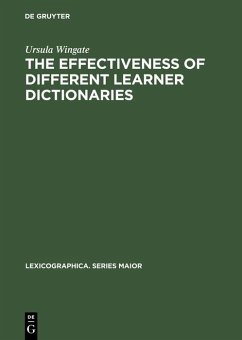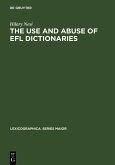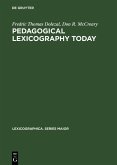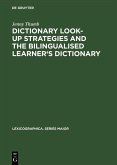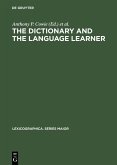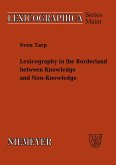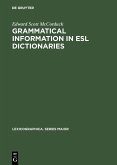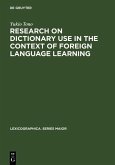This book examines two questions: firstly, which dictionary type, bilingual or monolingual, is most effective for intermediate learners of German, and secondly, which features make monolingual dictionary definitions more effective. Using Chinese students from Hong Kong and Shanghai as the subjects of research, the effectiveness of the different dictionary types for reading comprehension and incidental vocabulary learning was measured experimentally and by the think-aloud method.
The only monolingual learner dictionary for German available at that time proved linguistically too difficult for the intermediate proficiency level. Therefore, new definitions were developed based on findings from the think-aloud study and on principles promoted as user-friendly in lexicographic literature. Comparison of the two definition types revealed several features that determine their effectiveness for intermediate learners. Findings have theoretical and pedagogical implications. In the theoretical field, some lexicographic principles were recommended that are, unlike previous principles, based on empirical insights into user needs. In the pedagogical field, the findings provide an empirical basis for the evaluation and recommendation of suitable dictionaries for intermediate learners.
Dieser Download kann aus rechtlichen Gründen nur mit Rechnungsadresse in A, B, BG, CY, CZ, D, DK, EW, E, FIN, F, GR, HR, H, IRL, I, LT, L, LR, M, NL, PL, P, R, S, SLO, SK ausgeliefert werden.

